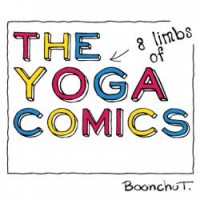“Dṛṣṭi means gazing point. There are nine dṛṣṭis in the āsana practice. If the dṛṣṭi indicated for the āsana is too difficult, one may always revert to nāsāgra dṛṣṭi. With time and practice, the proper dṛṣṭi for each posture will be possible. Dṛṣṭi improves concentration and brings about a realization of oneness during the practice. With the gaze focused in one place during our practice, we can be more present in the postures. This focus and awareness can carry over into our daily life.”
~ Sharath Jois
“By practicing these drishti (dṛṣṭi) points the mind no longer looks around, observing or judging, but instead becomes focused and soft. In the vinyasa system, drishti is one of the vital components to draw prana inwards. Prana follows awareness. If our awareness is scattered then our prana will mirror those same qualities and it will be evident in our behavior and life choices on and off the mat.”
The nine Drishtis:
1 – Tip of the nose – Nasagra Drishti
2 – Up to space – Urdva Drishti
3 – Third Eye – Brumadya Drishti
4 – Tip of the middle finger – Hastagra Drishti
5 – Tip of the thumb – Angushta Drishti
6 – Right Side – Parshva Drishti
7 – Left Side – Parshva Drishti
8 – Navel – Nabi Drishti
9 – Tip of the big toe – Padagra Drishti
Guruji: “Yoga is an internal practice, the rest is just a circus.”
***
Credits, References, Notes:
Please consult your teacher regarding correct drishti. For ease in reading for non-Sanskrit speakers, we have chosen to spell sanskrit words phonetically rather than using diacritic marks.R. Sharath Jois, AṢṬĀṄGA YOGA ANUṢṬHĀNA.
Magnolia Zuniga http://on.fb.me/17EBEyFThe Yoga Comics
Awesome Editor: Jessica Walden and Elise Espat(Albuquerque Ashtanga Yoga Shala
Cartoon guy: Boonchu Tanti , Ashtanga Illustrations by Boonchu
Like elephant Yoga on Facebook.
Ed: Brianna Bemel

 Share on bsky
Share on bsky






Read 1 comment and reply